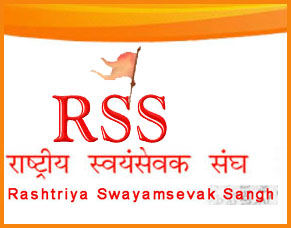Posted: 27 Feb 2010 06:38 AM PST
Namaste,We are sad to inform you that two veteran RSS leaders Dr. SRIPATI SHASTRI of PUNE and Sri NANAJI DESHMUKH of CHITRAKOOT passed away today.
Dr. SRIPATI SHASTRI was basically from HARIHARA of CHITRADURGA district in Karnataka. A gold medalist from Mysore University in history. He did his Ph. D thesis on "history of constitution of the world". Then he joined department of history at Pune University and worked as professor of history for two decades.
He was an active member of RSS from his student days. Dr. Shastry was a well known intellectual, speaker and thinker. He was a member of national executive committee. his lectures on "Partition of Bharat" and "1857 freedom movement" were highly inspiring. He visited several western countries and participated in many RSS functions. Unmarried, he dedicated much of his life for the cause of society. His famous book on "RSS on Christian activities" was a noted work.He was respected by all spectrum of the society irrespective of political and religious groups. His nature was acceptable to everyone and was a great teacher of history for thousands.RSS pays tributes to the great soul.
Ulhas Latkar (Publisher, Ameya Prakashan, Pune) Manohar Joshi, Ravindra Dani (Translator), Narendra Modi, Gopinath Munde, Dr. Sripati Shastri (extreme right)
Sri. Nanaji Deshmukh
Sri. Nanaji Deshmukh known for his work on rural development of villages in Madhyapradesh. His work based at Chitrakoot was model in the rural development field and regarded as "a complete laboratory of rural development". He was the founder of 'Deendayal Research institute' at Arogyadham parisar of Chitrakoot, Satna District, Madhyapradesh.
Chitrakoot Project is an integrated and holistic model for the development of rural India, based on the principles outlines in Pt. Deendayal Upadhyaya's Integral Humanism to create a society based on the complimentarity of the family, primary school and the local population. The Chitrakoot Project is a self-reliance campaign that was launched on 26th January 2002 and will cover 500 villages around Chitrakoot in 2 phases. The 80 villages taken up in the 1st phase will be self-reliant by 15th August 2005, and the remaining villages will achieve self-reliance by 26th January 2009. The Campaign has also been started in the villages covered by the Institute in Gonda and Beed districts. The self-reliance campaign covers all aspects of individual, family and societal life of the villagers. The key to the campaign is the concept of Samaj Shilpi Dampati (SSD), 'graduate' couples that lives within the villages itself, and are responsible for motivating and guiding a cluster of 5 villages.
"I recently visited Chitrakoot in Madhya Pradesh, where I met Shri Nanaji Deshmukh, 90+ and his team belonging to the Deendayal Research Institute (DRI). The DRI is a unique institution developing and implementing a village development system, which is most suited for India. As a part of integrated rural development, villagers are engaged in water harvesting; effectively using it for cultivation of food grains, medicinal and aromatic and horticulture cultivation. They are transforming herbs into herbal products and marketing them. Apart from all these development activities, the institute is facilitating a cohesive conflict free society. As a result of this, eighty villages around Chitrakoot are almost litigation free. Villagers have unanimously decided that no dispute will find its way to court. Differences will be sorted out amicably in the village itself. The reason given by Nana Deshmukhji is that if the people fight among each other they will have no time for development. This is also true in the life of a nation in every political system. The work of the DRI has enabled the generation of employment for a large number of farmers in the Chitrakoot region. During my visit, I went to a small village called Patni where the villagers talked to me about the progress of their village and their problems. Many women said they have to send their children long distances for studying beyond the 10th Class. They requested up-gradation of the school to the plus 2 level. They also felt the need for a road which would connect multiple villages. The then Chief Minister readily agreed and announced in the meeting itself, that school upgradation and the provision of roads would be implemented immediately. I am sure that would add to the happiness of many village farmers. The DRI understands that people's power is very potent. Social advancement and prosperity are possible only by injecting the spirit of self-reliance and excellence in the younger generation. Using this principle the DRI has plans to develop a hundred clusters of villages having approximately five villages each around Chitrakoot, based on the experience of 80 villages in 16 clusters. All these have been accomplished through the DRIs "samajshilpi dampati" a new concept of counseling and intervention promoted by the DRI as a well conceived societal mission.
I would like to share a few thoughts with the Honorable Members of this Legislative Assembly on the topic "Missions for Madhya Pradesh's Prosperity" with reference to the core competence of Madhya Pradesh and national vision."
Visit www.chitrakoot.org and w
--



